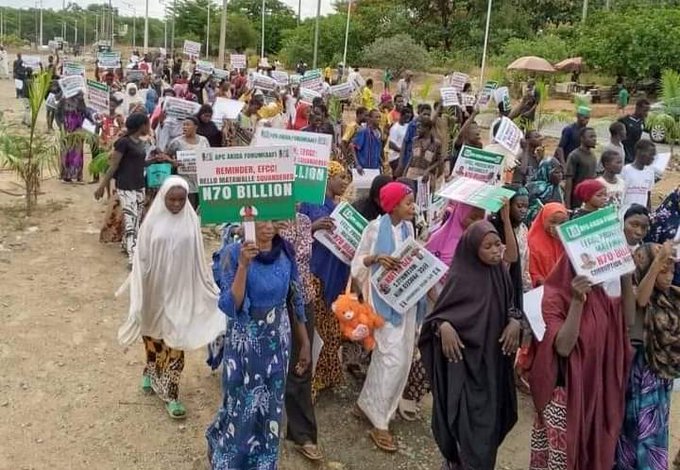Abdulmalik Sarkindaji, speaker of the Niger state house of assembly, says he is only sponsoring the wedding of 100 girls in his constituency — not marrying them off.
Sarkindaji had announced his intention to sponsor the wedding of 100 orphan girls who lost their parents in banditry attacks in Mariga LGA of the state — as part of his constituency projects.
The development elicited reactions from the public, with many asking why the girls were not enrolled in school instead.
Reacting in a statement by Shamsudeen Binaira, his senior special assistant on communication, Sarkindaji said the girls are of marriageable age, and that some of them already had their suitors but could not finance their wedding.
Advertisement
He explained that the decision to foot the bills of the marriages was borne out of his sympathy for their parents, some of whom are dead.
“Majority of these girls are orphans who have lost their parents, including children of our gallant vigilantes who lost their lives to bandits and nobody to finance their wedding despite attaining marriage age with someone ready to marry them,” the statement reads.
“These girls are not being married out against their will or that their husbands are being forced on them, they have suitors of their choice but only that the parents and relatives do not have the means to marry them out.
Advertisement
“According to the tradition of Hausa, you cannot marry out a girl without accompanying her with some essential needs to make her comfortable in her husband’s house like room furniture, such as bed, mattress, kitchen utensils among others.
“That is what these girls are lacking and that is the responsibility the speaker agrees to shoulder and relieve the parents of such burden.
“Their parents have been postponing the marriage for lack of resources and the speaker decided to take over.”
The lawmaker said he consulted immediate parents who are alive, some relations of the orphans, religious leaders, and other critical stakeholders in the area, before arriving at the decision.
Advertisement







